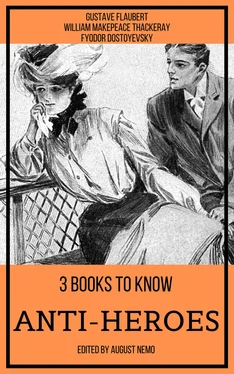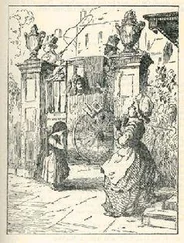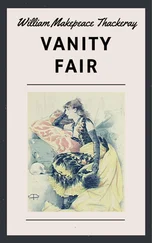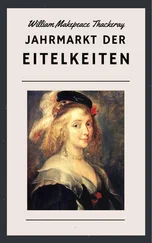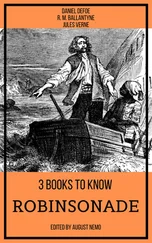The punishment was incessant. Every officer had the liberty to inflict it, and in peace it was more cruel than in war. For when peace came the King turned adrift such of his officers as were not noble; whatever their services might have been. He would call a captain to the front of his company and say, ‘He is not noble, let him go.’ We were afraid of him somehow, and were cowed before him like wild beasts before their keeper. I have seen the bravest men of the army cry like children at a cut of the cane; I have seen a little ensign of fifteen call out a man of fifty from the ranks, a man who had been in a hundred battles, and he has stood presenting arms, and sobbing and howling like a baby, while the young wretch lashed him over the arms and thighs with the stick. In a day of action this man would dare anything. A button might be awry THEN and nobody touched him; but when they had made the brute fight, then they lashed him again into subordination. Almost all of us yielded to the spell—scarce one could break it. The French officer I have spoken of as taken along with me, was in my company, and caned like a dog. I met him at Versailles twenty years afterwards, and he turned quite pale and sick when I spoke to him of old days. ‘For God’s sake,’ said he, ‘don’t talk of that time: I wake up from my sleep trembling and crying even now.’
As for me, after a very brief time (in which it must be confessed I tasted, like my comrades, of the cane) and after I had found opportunities to show myself to be a brave and dexterous soldier, I took the means I had adopted in the English army to prevent any further personal degradation. I wore a bullet around my neck, which I did not take the pains to conceal, and I gave out that it should be for the man or officer who caused me to be chastised. And there was something in my character which made my superiors believe me; for that bullet had already served me to kill an Austrian colonel, and I would have given it to a Prussian with as little remorse. For what cared I for their quarrels, or whether the eagle under which I marched had one head or two? All I said was, ‘No man shall find me tripping in my duty; but no man shall ever lay a hand upon me.’ And by this maxim I abided as long as I remained in the service.
I do not intend to make a history of battles in the Prussian any more than in the English service. I did my duty in them as well as another, and by the time that my moustache had grown to a decent length, which it did when I was twenty years of age, there was not a braver, cleverer, handsomer, and I must own, wickeder soldier in the Prussian army. I had formed myself to the condition of the proper fighting beast; on a day of action I was savage and happy; out of the field I took all the pleasure I could get, and was by no means delicate as to its quality or the manner of procuring it. The truth is, however, that there was among our men a much higher tone of society than among the clumsy louts in the English army, and our service was generally so strict that we had little time for doing mischief. I am very dark and swarthy in complexion, and was called by our fellows the ‘Black Englander,’ the ‘Schwartzer Englander,’ or the English Devil. If any service was to be done, I was sure to be put upon it. I got frequent gratifications of money, but no promotion; and it was on the day after I had killed the Austrian colonel (a great officer of Uhlans, whom I engaged—singly and on foot) that General Bulow, my colonel, gave me two Frederics-d’or in front of the regiment, and said, ‘I reward thee now; but I fear I shall have to hang thee one day or other.’ I spent the money, and that I had taken from the colonel’s body, every groschen, that night with some jovial companions; but as long as war lasted was never without a dollar in my purse.
CHAPTER VII. BARRY LEADS A GARRISON LIFE, AND FINDS MANY FRIENDS THERE
––––––––
AFTER THE WAR OUR REGIMENT was garrisoned in the capital, the least dull, perhaps, of all the towns of Prussia: but that does not say much for its gaiety. Our service, which was always severe, still left many hours of the day disengaged, in which we might take our pleasure had we the means of paying for the same. Many of our mess got leave to work in trades; but I had been brought up to none: and besides, my honour forbade me; for as a gentleman, I could not soil my fingers by a manual occupation. But our pay was barely enough to keep us from starving; and as I have always been fond of pleasure, and as the position in which we now were, in the midst of the capital, prevented us from resorting to those means of levying contributions which are always pretty feasible in wartime, I was obliged to adopt the only means left me of providing for my expenses: and in a word became the ORDONNANZ, or confidential military gentleman, of my captain. I spurned the office four years previously, when it was made to me in the English service; but the position is very different in a foreign country; besides, to tell the truth, after five years in the ranks, a man’s pride will submit to many rebuffs which would be intolerable to him in an independent condition.
The captain was a young man and had distinguished himself during the war, or he would never have been advanced to rank so early. He was, moreover, the nephew and heir of the Minister of Police, Monsieur de Potzdorff, a relationship which no doubt aided in the young gentleman’s promotion. Captain de Potzdorff was a severe officer enough on parade or in barracks, but he was a person easily led by flattery. I won his heart in the first place by my manner of tying my hair in queue (indeed, it was more neatly dressed than that of any man in the regiment), and subsequently gained his confidence by a thousand little arts and compliments, which as a gentleman myself I knew how to employ. He was a man of pleasure, which he pursued more openly than most men in the stern Court of the King; he was generous and careless with his purse, and he had a great affection for Rhine wine: in all which qualities I sincerely sympathised with him; and from which I, of course, had my profit. He was disliked in the regiment, because he was supposed to have too intimate relations with his uncle the Police Minister; to whom, it was hinted, he carried the news of the corps.
Before long I had ingratiated myself considerably with my officer, and knew most of his affairs. Thus I was relieved from many drills and parades, which would otherwise have fallen to my lot, and came in for a number of perquisites; which enabled me to support a genteel figure and to appear with some ECLAT in a certain, though it must be confessed very humble, society in Berlin. Among the ladies I was always an especial favourite, and so polished was my behaviour amongst them, that they could not understand how I should have obtained my frightful nickname of the Black Devil in the regiment. ‘He is not so black as he is painted,’ I laughingly would say; and most of the ladies agreed that the private was quite as well-bred as the captain: as indeed how should it be otherwise, considering my education and birth?
When I was sufficiently ingratiated with him, I asked leave to address a letter to my poor mother in Ireland, to whom I had not given any news of myself for many many years; for the letters of the foreign soldiers were never admitted to the post, for fear of appeals or disturbances on the part of their parents abroad. My captain agreed to find means to forward the letter, and as I knew that he would open it, I took care to give it him unsealed; thus showing my confidence in him. But the letter was, as you may imagine, written so that the writer should come to no harm were it intercepted. I begged my honoured mother’s forgiveness for having fled from her; I said that my extravagance and folly in my own country I knew rendered my return thither impossible; but that she would, at least, be glad to know that I was well and happy in the service of the greatest monarch in the world, and that the soldier’s life was most agreeable to me: and, I added, that I had found a kind protector and patron, who I hoped would some day provide for me as I knew it was out of her power to do. I offered remembrances to all the girls at Castle Brady, naming them from Biddy to Becky downwards, and signed myself, as in truth I was, her affectionate son, Redmond Barry, in Captain Potzdorffs company of the Bulowisch regiment of foot in garrison at Berlin. Also I told her a pleasant story about the King kicking the Chancellor and three judges downstairs, as he had done one day when I was on guard at Potsdam, and said I hoped for another war soon, when I might rise to be an officer. In fact, you might have imagined my letter to be that of the happiest fellow in the world, and I was not on this head at all sorry to mislead my kind parent.
Читать дальше
